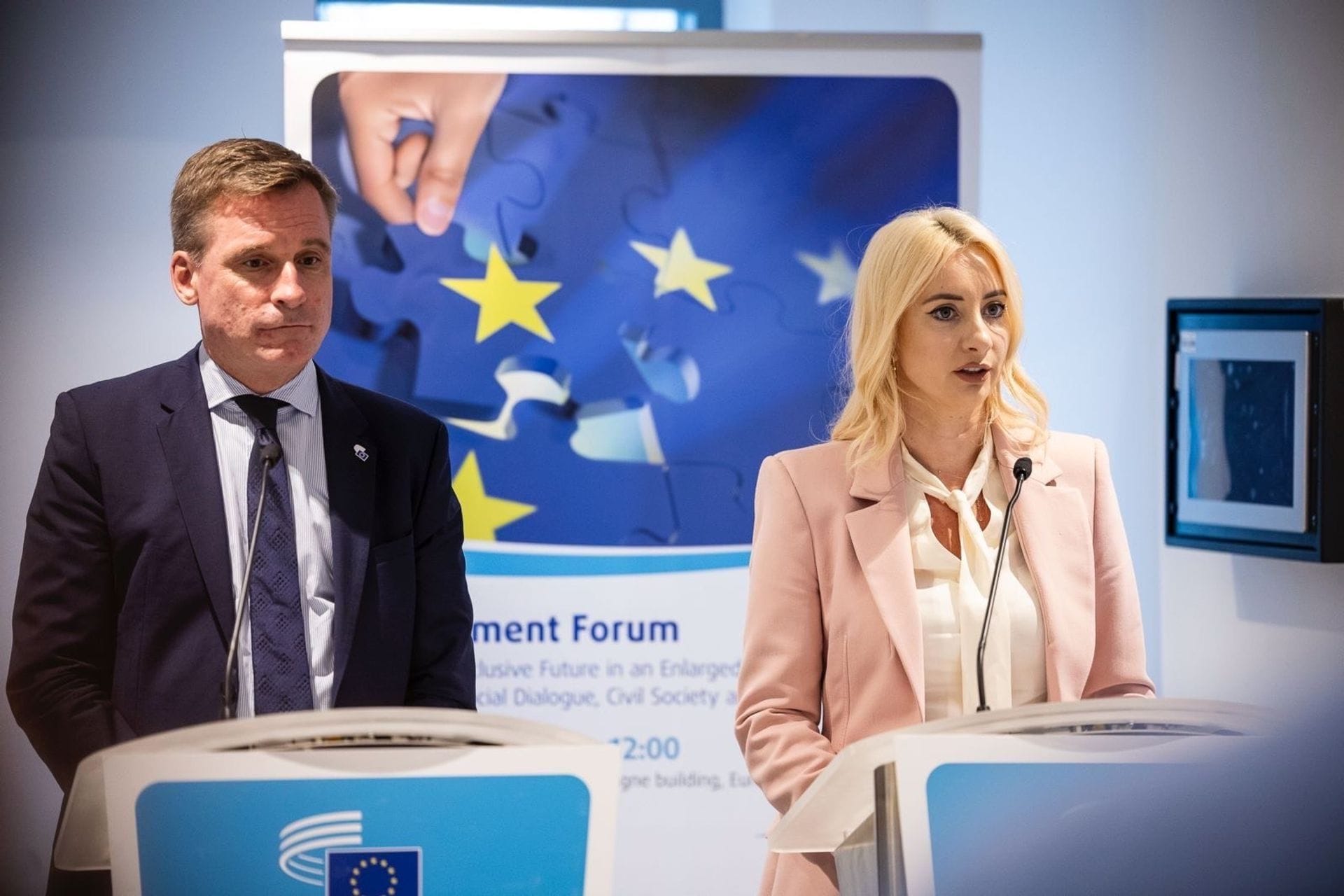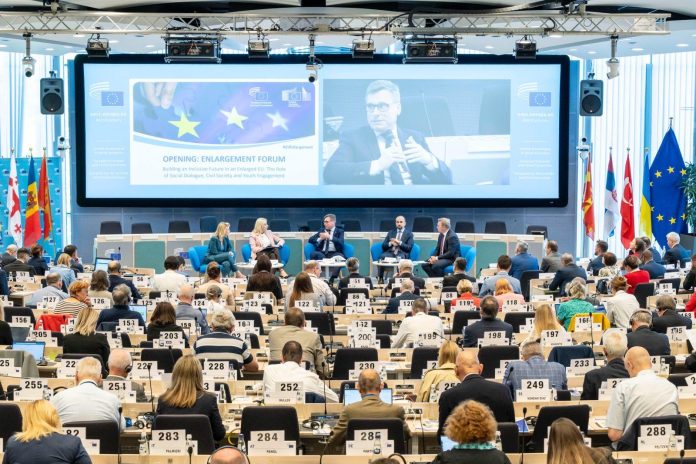Minister of European Affairs Maida Gorčević participated in the forum “Building an Inclusive Future in an Enlarged EU: The Role of Social Dialogue, Civil Society, and Youth Engagement,” organized by the European Economic and Social Committee (EESC) in Brussels.
At the opening of the Forum, Gorčević emphasized that Montenegro, from the very beginning, has included civil society and non-governmental organizations in the negotiation process as equal partners. As she stated, representatives of the civil sector participate in all negotiation working groups as full members who can contribute and take part in decision-making.
“This approach has significantly influenced the quality and credibility of our reforms on the path to the EU. The participation of the civil sector has ensured greater transparency, public trust, and broader ownership of the EU agenda,” Minister Gorčević stated.

She added that in Montenegro the participation of civil society is institutionalized through their membership in key bodies, such as the Council for the Rule of Law, the Supervisory Board for the Reform Agenda within the Growth Plan, and the Council for Cooperation with Non-Governmental Organizations.
“All these bodies are very active, and I must say that in Montenegro we have a really strong NGO sector, of which we should be proud,” Gorčević concluded.
President of the European Economic and Social Committee Oliver Ropke praised Montenegro as one of the leaders of the enlargement process. He emphasized the importance of social dialogue in candidate countries, pointing out that a successful enlargement process cannot be limited only to relations between European institutions and governments but must strongly include civil society as well.
“If we want to achieve results by 2028, we must work together. A democratically resilient civil society in candidate countries is in the interest of the entire EU,” Ropke stated.
Representatives of governments, civil society, trade unions, and international organizations from member states and candidate countries participated in the Forum in Brussels. The EESC is an advisory body of the European Union that brings together representatives of employers, trade unions, and civil society organizations to ensure that the voices of social actors are heard in the European policymaking process and was the first institution to open its doors to candidate countries. Montenegro has been a member of the EESC since 2024.


